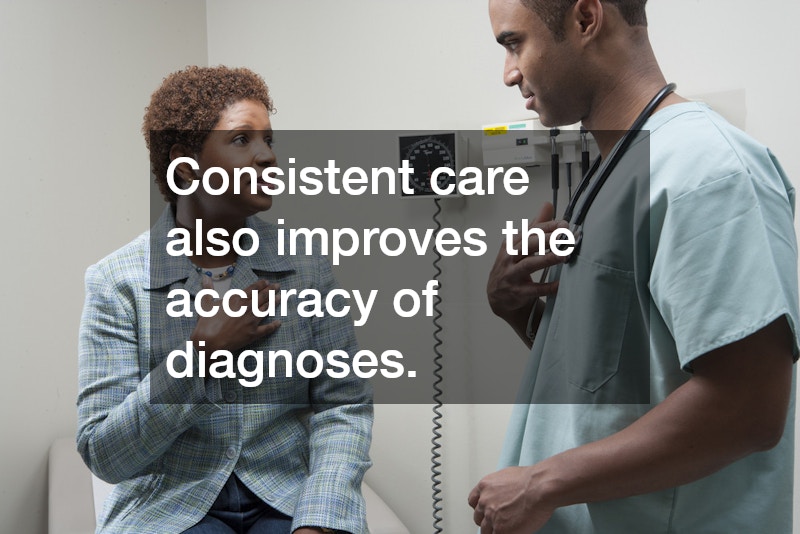
Health issues rarely appear suddenly. In most cases, the body sends early warnings—subtle changes in energy levels, minor aches, or small shifts in daily habits that are easy to dismiss. Unfortunately, many people ignore these clues until symptoms become disruptive or painful. Early detection can make all the difference, and this is where regular check-ins with a healthcare provider become invaluable. Routine care helps uncover problems while they are still manageable, often long before symptoms gain momentum.
Through ongoing monitoring, screenings, and personalized health evaluations, doctor appointments play a vital role in identifying concerns early and preventing long-term complications.
1. Early Monitoring Reveals Issues Long Before Symptoms Appear
Many health conditions develop slowly over time, building beneath the surface without noticeable signs. High blood pressure, for example, is known as the “silent killer” because it typically shows no symptoms until it becomes severe. The same is true for high cholesterol or insulin resistance—both can quietly progress for years.
Regular visits allow healthcare providers to track these important measurements over time. When someone has their vitals checked consistently, small changes become easier to detect. A slight rise in blood pressure might not seem significant during a single visit, but a pattern of increases over several months can signal the early stages of a more serious condition. By catching these trends early, providers can recommend lifestyle changes, medication, or additional testing before the issue escalates.
Early detection is also especially important in conditions that affect long-term organ function. Issues with liver enzymes, kidney filtration, or thyroid activity often begin subtly. Without routine monitoring, these problems can go unnoticed until they become more difficult to treat.
2. Preventive Screenings Identify Problems Not Yet Felt
One of the strongest benefits of ongoing healthcare is access to preventive screenings. These tests are designed to uncover problems early, even when no symptoms are present. Many serious diseases begin silently, including certain cancers, bone disorders, and cardiovascular issues. By the time symptoms appear, the condition may already be in an advanced stage.
Screenings like mammograms, colonoscopies, prostate exams, and bone density tests help detect potentially serious issues at their earliest—and most treatable—phase. Similarly, routine bloodwork can highlight deficiencies, infections, inflammation, or metabolic imbalances long before the individual feels unwell. These insights allow patients to take action early and avoid the complications that come from late-stage diagnosis.
Preventive care also includes age-specific and gender-specific assessments. As people grow older, the recommendations for screenings evolve. A person in their 20s may need fewer routine tests than someone in their 50s, but the consistency of care is what ensures they receive the right evaluations at the right time.
3. Routine Visits Support Lifestyle Adjustments That Prevent Disease
Identifying problems early is important, but preventing new issues from developing is just as essential. Regular visits give patients the opportunity to discuss diet, exercise, stress levels, sleep, and other lifestyle factors that influence their overall health. Providers can offer practical, personalized guidance based on real data, not guesses or assumptions.
For example, a patient may feel fatigued but assume it’s due to a busy schedule. A healthcare provider, however, may recognize that this pattern could be linked to anemia, vitamin deficiencies, or even early thyroid dysfunction. With this insight, they can recommend specific dietary adjustments or supplements that address the root cause. Small changes—when made early—can prevent more serious health problems in the future.
These conversations also provide a space to discuss habits that could increase long-term health risks. Issues like smoking, poor nutrition, sedentary routines, or unmanaged stress all have well-documented effects on future wellness. Through individualized advice, patients learn actionable steps that support healthier living.
4. Trusted Relationships Lead to Better Communication and Earlier Care
A strong relationship with a healthcare provider can make patients more comfortable discussing concerns they might otherwise keep to themselves. People often minimize symptoms because they seem minor or because they don’t want to appear overly worried. Unfortunately, this hesitation can delay the detection of conditions that benefit from early intervention.
When patients maintain consistent communication with the same provider, trust naturally builds. Over time, the provider becomes familiar with the patient’s medical history, personality, and typical health patterns. This familiarity allows them to recognize subtle changes that may indicate underlying issues. It also encourages patients to speak up when something feels off, even if the symptom seems insignificant. This connection creates a collaborative approach to care—one where concerns are addressed quickly, and decisions are made with confidence.
Consistent care also improves the accuracy of diagnoses. When a provider has a full picture of someone’s past health, medications, lifestyle changes, and family history, they can make more informed decisions. This level of personalized attention is difficult to achieve without ongoing visits. The continuity provided through regular doctor appointments ensures that each evaluation builds upon the last, offering a clearer, deeper understanding of the patient’s health over time.Many serious health problems begin quietly, long before symptoms become noticeable.By staying proactive with doctor appointments, patients give themselves the best chance to address issues early, make informed decisions, and protect their overall health for years to come.

